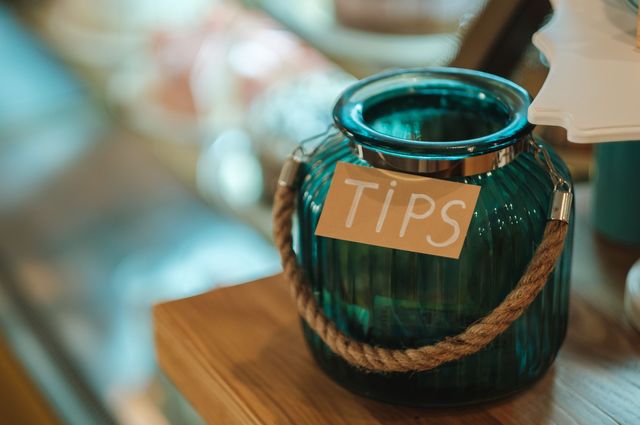Should OTAs and other intermediaries be asking customers for a tip?
12 experts shared their view
Recently, Hopper, an OTA based in Canada, started to ask customers to pay a "tip" to Hopper as part of the booking. The tip is included automatically in the final price on the final payment page before completing the booking. The customer has to switch the toggle to the off position in order to not pay a tip.
The tip itself is either a flat fee ($3-$5) or a percentage of the booking, depending on the type of booking, according to Hopper's website.
Asked by ABC who actually gets the tip, Hopper replied: "This tip goes to Hopper and is completely optional. Customers have the ability to opt-in or out."
Some industry experts believe that "Hopper again is innovating", while others believe that tipping is a discretionary expense, paid AFTER the service has been delivered, paid personally to the person who delivered the service, based on the quality of the service provided.
The question is, should OTAs and other intermediaries be asking customers for a tip and will travel consumers accept this "novelty" approach?
No. They shouldn't.
Tips are things we pay to a person who has helped us. In Europe it is to someone who has helped us beyond the usual. In the US it seems like the tip has replaced the salary.
Asking for tips like this is like the resort fees, the green fees and all the other random fees that companies are adding in a way to give a false appearance of a lower price.
If the business needs more money to survive then the solution is either cut costs or increase price. Keeping a low price and then adding fees or tips is false advertising. Just like employees should get a proper salary, if they do a really good job they get a bonus (or when paid by a customer a tip).
So hang on, the tip goes to hopper for making the booking and then charging commission to hotels on the other hand? Sounds to me like being married and having an affair same time.
The Tip should go to the person providing the service. But we also know that copmanies like to skim employees on that front, e.g. adding service charge for buffet breakfast but keeping it, only paying half of it to employees, making it part of the "pay package" etc. so that cheating people of tips who deserve it is ongoing all across the world.Big no no for me what Hopper is doing and dont reall see any argument that would speak for it. Tip = reward for service provided and totally optional
A tip? For what... exceptional programming, unique product selection, a brilliant write-up? This is the ultimate in arrogance. First of all, let's just step back a bit. An OTA is a self-serve, distribution system. This compares to a traditional travel agent, which is (what I would call) full-service. Do you tip your regular TA, someone who you might actually know and who goes out of their way to make your journey pleasant? Rarely, in fact, they usually find a way to ensure that you get a bonus, such as a welcome gift, etc. To go the opposite way and to give a tip to a programmer is frankly ludicrous. It is just another fee that the consumer has to pay.
Tipping a humanless, online booking platform for a transaction? Seriously? Can't help but relive that famous scene from the movie Reservoir Dogs where Harvey Keitel (Mr White) tells Steve Buscemi (Mr Pink) why it's important to tip your typical American Diner waitress.
I mean, in the context of that movie, tipping makes sense or at least is presented with believeable arguments. As it does whenever you actually get service from someone - that's what tipping was intended for. To supplement the base salary of an employee with extra money as a mark of appreciation for a job well done.
But tipping Hopper after a transaction? Nothing disruptive here - reminds me more of those hefty resort fees charge once you get at a destination! And look at how this is going, with lawsuits abounding and hotels pulling back on that concept.
Sorry, but this concept won't fly.
Order pizza and you'll likely tip on delivery. Use a food delivery service and you'll be given the choice to tip when ordering or on delivery. These examples cement a social norm to reward the service a person has provided.
OTAs like Hopper act as sales channels however, as seen during the pandemic, very few are capable of assisting customers when things go wrong. It's the likes of hotels who make or break someone's holiday experience. OTAs market themselves as empowering consumers to self-service their holidays. Adding a "tip", is a bit rich.
New York Times highlighted the "proliferation of digital payment products" as making it easier for businesses that didn"t previously ask for tips to now do so. The concept of "guilt tipping" - where consumers feel pressured to oblige or don't notice charges - is on the rise. Hopper's proposed default "on" mode for extra charges fits that definition.
Hopper's proposal is disingenuous - they should call this charge what it really is, an additional transaction fee designed to top up their revenue.
Most importantly, I cannot see how this supports hoteliers and hotel staff that have had a particularly rough time the last few years.
Related article by Ryan Haynes
I think Mr. Pink explained it perfectly. I don't tip. I don't believe in it. I don't because society says I have to. If someone deserves a tip, if they really put forth an effort, I'll give them a little something extra. But this tipping automatically, it's for the birds. As far as I'm concerned, they're just doing their job.
The bottom line? Tipping for a travel prediction algorithm is equivalent to my mom saying 'please,' 'thank you,' and 'good job' when talking to ChatGPT.
Great "innovation", indeed! Hopper should be entered in the Guinness Book of Records for the most distasteful initiative in the travel industry.
Tipping is a discretionary expense, paid AFTER the service has been delivered, given personally to the person who delivered the service, naturally based on the quality of the service provided.
Collecting a tip IN ADVANCE before the service has even begun? On top of that collected it on behalf of a corporate entity like Hopper?
Every for-profit company should be making money. But why Hopper calls this a tip, when charging service fees for airline reservations is a very well established industry practice? Didn't Hopper know this?
Hopper should have called this a "service fee", similar to industry wide accepted practices - all TMCs, traditional travel agencies and some OTAs (CheapTickets..com) are charging service fees for the non-commissionable airline tickets.
The major OTAs also used to charge $5-$6 service fee per airline reservation until 2009, when Priceline removed the fee and all other OTAs followed suit.
Seriously.
If Hopper want to provide a human travel agency service that could be a step in right direction from a credibility perspective.
With that said everyone seems to have their hand out these days even when it is a DIY experience. Shameless would be the word that comes to mind. (having no shame: insensible to disgrace)
It might be time for mandatory built in service charges for consulting.
Anyone keen for that? Methinks not.
Tipping to show gratitude or appreciation to a worker providing good-to-excellent customer service has been the norm in North America. In recent years, a growing number of businesses have also begun offering customers more options to tip (more), such as in many self-service kiosks. Undoubtedly, tipping generates additional revenues, which is excellent for businesses. It is hence not surprising to see Hopper takes on this tipping trend.
Nevertheless, is tipping necessary or fair to consumers using only a self-service option? What if they use a service provided by machines?
Maybe, we shall let individual consumers decide on their own. Some consumers may like tipping to show appreciation for an exceptional service received, regardless of if the service is facilitated or delivered by AI-empowered machines without human interactions. They may want to reward/tip the company that impresses them with exceptional service. The good news is that consumers may still opt out of tipping (at this point).
A gratuity should be an optional way for the guest (consumer) to show appreciation for good service. Hotels and restaurants are the most commonly accepted environments where tips are often given to hotel staff or waiters and waitresses. It seems absurd that an OTA would ask for a tip at any point in the transaction, but particularly so at the time of booking when nothing has been delivered or consumed yet by the consumer. Nothing particularly innovative here.
We're being asked whether it's OK for a company to charge its customers additional "optional" fees, for which the customer receives no additional benefit? No greater value? And those fees are "opt out," not "opt in"? Do I understand that correctly?
Because, if I do understand the question, I'd ask why Hopper — or any other company choosing this approach — feels their service isn't worth a premium price, especially if we're valuing that "premium" in single digits. The WSJ recently noted that many customers view tips on self-service transactions as "emotional blackmail." Is that bad? Because it sounds bad.
So, yes, any company following this approach might make a few dollars in the near term. They might be able to soothe investors itching to see a better return on the nearly three-quarter billion dollars invested in the travel startup since its inception. They're also clearly not looking to build long-term value in the eyes of their customers or the marketplace. So, sure. Go ahead and pocket a few bucks with no return to your customers. It's free money, after all. But I'd only try it if you're not planning to be around in the longer term.
Online platforms such as OTAs are classic examples of double-sided marketplaces, typically trying to match supply with demand. As such they face double the costs of 'normal' businesses since they need to ensure there is sufficient supply to meet demand, and vice versa.
To compensate for this, many (most notably Airbnb within the travel sector) have tried charging both parties (suppliers and customers), for the most part unsuccessfully. Irrespective of whether you call it administrative charges, fees, or a tip, consumer reaction to date to costs split out in this way has been overwhelmingly negative.
And making these fees optional, but pre-ticking the box, shows incredibly short-term thinking. Maybe it will generate a few dollars from unsuspecting customers not paying attention, but its long-term effect on customer satisfaction is sure to be negative. Hopper may be innovating, but not in a good way. Innovation can be interesting, but only when guided by the mistakes of the past.












